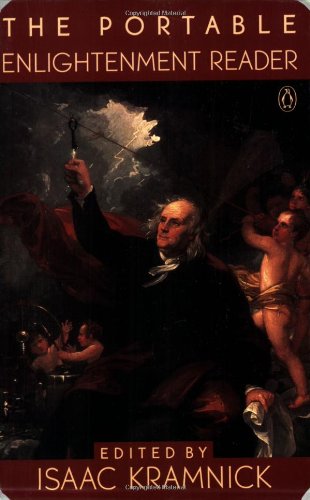Books, Brochures, and Chapters>Book Chapter: d'Alembert, Jean Le Rond (1751), The Human Mind Emerged from Barbarism, Retrieved on 2011-05-30Source Material [rationalargumentator.com]
Folksonomies: enlightenment philosophes Memes
30 MAY 2011
 The Geniuses for Whom the Greeks would Build Statues
The Geniuses for Whom the Greeks would Build Statues
These are the principal geniuses that the human mind must regard as its masters and for whom the Greeks would have erected statues, even if they were obliged to make more space by demolishing the monuments of some conquerors.Folksonomies: enlightenment philosophes
Folksonomies: enlightenment philosophes
Bacon, Descartes, Newton, and Locke are the "principal geniuses" of the Enlightenment.
30 MAY 2011
 Why Descartes Matters
Why Descartes Matters
His metaphysics, as ingenious and new as his physics, had approximately the same fate; and it is with approximately the same reasons that we can justify it. For such is today the fortune of this great man that after having had countless followers he is practically reduced to a few apologists. He was without doubt mistaken in assuming the existence of innate ideas: but if he had retained from the peripatetic sect [the Aristotelians] the only truth that they taught about the origin of ideas in ...Descartes is mocked for looking for innate ideas in the mind, but this is a minor infraction for the revelation he provided that we cannot trust our senses in any way.
30 MAY 2011
 Francis Bacon's Only Flaw Was that He Was Not Revolutionary
Francis Bacon's Only Flaw Was that He Was Not Revolutionary
We do not know what we should admire the most, his rich intuitive views on all subjects or the dignified tone of his style. His writings can be compared only with those of Hippocrates on medicine; and they would be neither less admired nor less read if the cultivation of the mind were as dear to the human race as the conservation of health. But only the writings of leading sectarians can achieve a certain vogue; Bacon was not one of them, and his philosophic method was opposed to this: it was...He was too dignified, his philosophy to straightforward to make waves in culture, but his simple idea to look at nature for what it is was a revolutionary idea.
Parent Reference

Books, Brochures, and Chapters>Book: Kramnick , Isaac (1995-12-01), The Portable Enlightenment Reader (The Viking Portable Library), Penguin (Non-Classics), Retrieved on 2011-05-30
Folksonomies: enlightenment classics 



